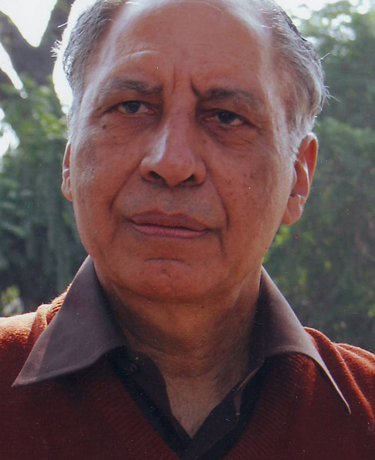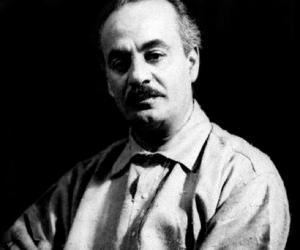“On Friendship” is the 19th piece in Kahlil Gibran’s best-known work, The Prophet.
The Prophet is a book of 26 prose poetry essays written in English. It was originally published in 1923 by Alfred A. Knopf.
In this book, the prophet Almustafa has lived in the foreign city known as Orphalese for 12 years and is about to board a ship that will carry him home. Just then, he is stopped by a group of people with whom he discusses life and the human condition. One of those topics is friendship.
About the Poet:
Kahlil Gibran was born on 6th January 1883 in Bsharri, Lebanon. Being very poor, his learning was limited to regular visits to a village priest who taught him the essentials of religion and the Bible, alongside the Syrian and Arabic languages.
When Gibran was eight, his father was accused of tax evasion and was sent to prison. The Ottoman authorities confiscated the Gibrans’ property and left them homeless. The strong-willed mother decided that the family should immigrate to the U.S.
They arrived in Boston in 1895. Having no formal education, Gibran was placed in an ungraded class reserved for immigrant children who had to learn English from scratch. Gibran’s curiosity also led him to the cultural side of Boston, which exposed him to the rich world of theatre, Opera, and artistic Galleries.
In 1904 Gibran had his first art exhibition in Boston. From 1908 to 1910, he studied art in Paris with August Rodin. In 1912 he settled in New York, where he devoted himself to writing and painting. Gibran’s early works were written in Arabic, and from 1918 he published mostly in English. In 1920 he founded a society for Arab writers called Mahar.
Gibran died in New York on 10th April 1931.
On Friendship: Setting
This poem is set before the ship on which Almustafa is to return home. Here he tells one of the members of the group of people stopping him how friendship ought to be.
On Friendship: Summary
The poem consists of 3 stanzas. The 1st stanza is made up of 4 lines. The 2nd stanza is made up of 11 lines. The 3rd stanza is made up of 7 lines. Hence, the entire poem consists of 22 lines in total. The speaker of this poem is Almustafa, the prophet, and it is written in the first person.
1st stanza:
“Your friend is your needs answered.
He is your field which you sow with love and reap with thanksgiving.
And he is your board and your fireside.
For you come to him with your hunger, and you seek him for peace.”
In this stanza, Almustafa says that a friend can be the solution to all your problems. Love and Thanksgiving are essential in friendship to show that you value your friend as much as a farmer values the harvest that feeds his family. Almustafa compares a friend with an inn at which you can arrive after travelling throughout the day. Your friend is sure to provide you with a bed to sleep in and a warm fire. You can ask him for food if you are hungry and a kind word if you are not restful.
2nd stanza:
“When your friend speaks his mind, you fear not the “nay” in your own mind, nor do you withhold the “ay.”
And when he is silent, your heart ceases not to listen to his heart;
For without words, in friendship, all thoughts, all desires, all expectations are born and shared, with joy that is unacclaimed.
When you part from your friend, you grieve not;
For that which you love most in him may be clearer in his absence, as the mountain to the climber is clearer from the plain.
And let there be no purpose in friendship save the deepening of the spirit.
For love that seeks aught but the disclosure of its own mystery is not love but a net cast forth: and only the unprofitable is caught.”
In this stanza, Almustafa says that when your friend asks for your opinion on something, you should be absolutely honest with him. You should say no if you disapprove, and you should heartily affirm your support where you feel it is due. Even when your friend stops speaking, there should be a silent communion between both your hearts. Friendship is a language that can communicate non-verbally as well. All the wants and needs of your friends, all his deepest thoughts, and his expectation from you should be clear to you even when they are not directly voiced. Only then will there be joy in friendship. When you say goodbye to your friend, it should not sadden you. Just as a climber can see the mountain more clearly from the plains, your friend’s absence may make it clear to you what you miss the most about him. One should only make friends to deepen his soul and establish stronger bonds. A love that is not unconditional is nothing more than a net cast to make selfish gains. However, this trap is only successful in capturing that which will prove to be of no profit to anyone.
3rd stanza:
“And let your best be for your friend.
If he must know the ebb of your tide, let him know its flood also.
For what is your friend that you should seek him with hours to kill?
Seek him always with hours to live.
For it is his to fill your need, but not your emptiness.
And in the sweetness of friendship, let there be laughter and sharing of pleasures.
For in the dew of little things, the heart finds its morning and is refreshed.”
In this stanza, Almustafa says that you should reserve your best moments to spend with your friends. Meet him not only when you have a little spare time but when you have ample free time as well. Your friend can fill your need but not your emptiness. Friendship should make you want to laugh and share all the pleasurable experiences of your life. It is these little things that friends do for each other that refresh man’s soul after a hard day of living in this difficult world. You can also refer to On Friendship: Analysis, Central Idea, and Theme here.
Updated by Anjali Roongta on 13th April 2023.
Some online learning platforms provide certifications, while others are designed to simply grow your skills in your personal and professional life. Including Masterclass and Coursera, here are our recommendations for the best online learning platforms you can sign up for today.
The 7 Best Online Learning Platforms of 2022
- Best Overall: Coursera
- Best for Niche Topics: Udemy
- Best for Creative Fields: Skillshare
- Best for Celebrity Lessons: MasterClass
- Best for STEM: EdX
- Best for Career Building: Udacity
- Best for Data Learning: Pluralsight









